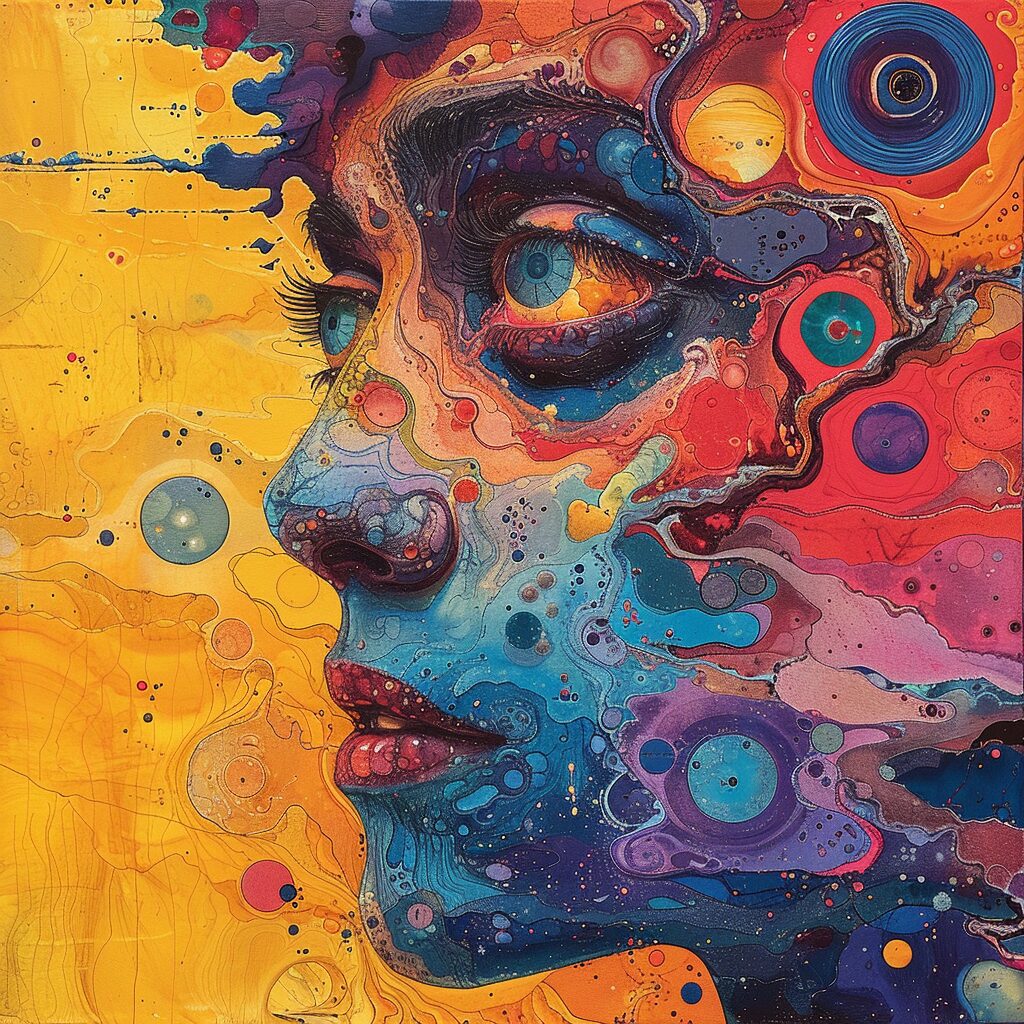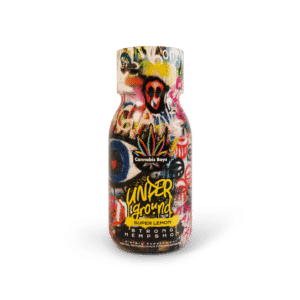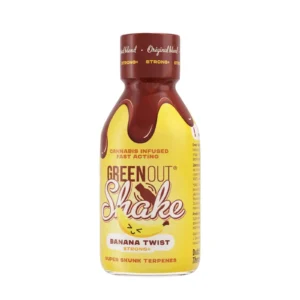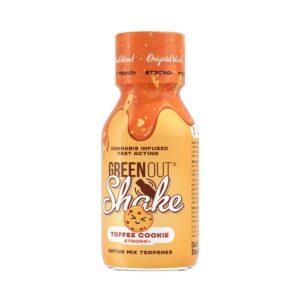Treatment of mental disorders – psychotherapy or drugs?
In the 1950s and 1960s, new psychiatric drugs, primarily antidepressants and anti-anxiety drugs, changed the approach to the treatment of mental disorders, pushing the previously popular psychotherapy (primarily psychoanalysis) into the background. However, due to evidence of the highest effectiveness of treating mental disorders with a combination of pharmacotherapy and psychotherapy, in the second decade of the 21st century this trend began to change.
The idea of incorporating fast-acting psychedelics into psychotherapy sessions is one aspect of this change. Conducting psychological sessions under the influence of psychedelics is called substance-assisted therapy (SAPT) or psychedelic psychotherapy (PAP).
Medical use of psychedelics
In recent decades, we have observed increased research interest in psychedelic substances, especially in the context of psychedelic support for the treatment of disorders such as depression (especially drug-resistant depression), post-traumatic stress disorder (PTSD) or alcohol addiction.
The encouraging results of ongoing experiments lead to further studies aimed at developing drugs containing psychedelic substances and the development of specific protocols for taking the substances. The next step is to strive for the development and marketing authorization of drugs containing psychedelics and the possibility of their legal use by mental health specialists in the therapy of patients with specific problems.
Under the 1971 UN Convention on Psychotropic Substances, psychedelics are among the most restrictively treated substances, both in terms of their medical and non-medical (recreational) use. That is why establishing regulations regarding therapy using psychedelics is such a difficult task.
There are a number of international associations (operating mainly in the USA, Canada and the EU) that bring together scientists, clinicians, research centers, patient associations and other types of entities that have been undertaking research, educational and lobbying activities for years to change this state of affairs.
International organizations working to build knowledge and legal changes about psychedelics include:
- MAPS (Multidisciplinary Association for Psychedelic Studies),
- APPA (American Psychedelic Practitioners Association )
- PAREA (Psychedelic Access and Research European Alliance)
In our Polish backyard there is the Polish Psychedelic Society , which is associated with larger international networks.
Depending on the substance, the state of scientific knowledge, the advancement of experiments and legislative activities vary. Let's look at the examples of MDMA and psilocybin.
MDMA in PTSD psychotherapy
In the United States, efforts to regulate MDMA therapy have been ongoing for over 30 years. It recently completed the final stage of clinical experiments on the use of this substance in the treatment of post-traumatic stress.
The collected data comes from, among others: from two Phase 3 clinical trials that assessed the effectiveness and safety of MDMA when used in combination with a psychological intervention. The effects were compared with a group in which a placebo was used instead of MDMA, also combined with a psychological intervention. The people participating in the study were diagnosed with severe or moderately severe PTSD.
In an article published in Psychiatric Times we read that according to researchers:
“MDMA works by reducing the emotional intensity associated with traumatic memories by reconsolidating traumatic memories during psychotherapy such that they are stored with less arousal activation. MDMA has also been noted to increase feelings of trust, safety and empathy, possibly through the release of oxytocin and serotonin, which may improve the therapeutic alliance between the therapist and the person ”.
Already in 2017, MDMA-based therapy for PTSD received a Breakthrough Therapy Designation from the FDA. MDMA therapy is currently being investigated for other indications.
The Food and Drug Administration (FDA) recently accepted a New Drug Application (NDA) for midomafetamine (MDMA) capsules. They are intended to be used in conjunction with psychological intervention for people suffering from post-traumatic stress disorder (PTSD).
The FDA is expected to decide on an application to approve MDMA capsules as a treatment for PTSD in August 2024. If approved, the drug would be the first legalized and regulated use of psychedelics in psychological therapy.
Once it is approved by the US Drug Administration, it will be time to translate these regulations into Europe and strive to introduce MDMA capsules to our medical market.
Psilocybin in psychotherapy of treatment-resistant depression
Psilocybin, a substance found naturally in mushrooms of several different species, has been studied in combination with psychotherapy in the context of various mental disorders, including: depression, obsessive-compulsive disorder, cluster migraine, cancer-related existential distress and anxiety disorders. The most promising data were obtained in experiments concerning the treatment of patients diagnosed with treatment-resistant depression.
Several clinical trials have demonstrated the potential effectiveness of psilocybin-assisted psychotherapy in treating patients with treatment-resistant depression, and in 2018, the FDA granted it Breakthrough Therapy Designation.
According to the authors of a review published in 2023 in the journal Behavioral Sciences, the results of all studies showed a significant reduction in depressive symptoms after treatment with one or two doses of psilocybin (1 or 2 assisted psychotherapy sessions).
The improvement in symptoms was immediate - in some cases, significant effects were visible on the first day or a week after the second dose. The improvement was long-lasting, with symptom reduction lasting up to 6, 8, and 12 months after assisted psychotherapy.
In early 2024, a drug containing synthetic psilocybin was approved by the FDA as a substance supporting the treatment of people with treatment-resistant depression.
Numerous studies are ongoing on the possibility of using psilocybin therapy in the treatment of other disorders. The research conducted so far included, among others: its use in the treatment of anxiety and alcohol addiction, as well as its possible effectiveness in the treatment of obsessive-compulsive disorders and PTSD (the latter were conducted, among others, with the participation of American war veterans).
Therapeutic sessions with psychedelics – the method of conducting matters
In outpatient treatment of depression and PTSD, antidepressants and anxiolytics are prescribed to patients for self-use on a daily basis, without a psychotherapeutic context.
During a psychedelic psychotherapy (PAP) session, the experiences that occur during it are important. In particular, mystical experiences, significant insights, and changes in beliefs are often cited as factors that allow individuals to transcend their usual patterns of thinking, feeling, and acting.
During these experiences, patients may become more observant, demonstrate deeper introspection, be less avoidant, and have a sense of emotional breakthrough, all of which are helpful in building lasting change.
In publications on psychedelic psychotherapy, we read that the state of mind and attitude of people who enter a psychedelic state and the environment in which the session takes place have a significant impact on the effects of therapy.
Factors highlighted include: physical and mental comfort, safety, presence and attitude of the therapist, and the person in therapy's beliefs about psychedelics and mental health. What is important is the relationship with the therapist and appropriate preparation for a psychedelic session and subsequent work with what happened during the session.
Conclusions related to the treatment of depression with psilocybin and PTSD using MDMA change the way we think about the treatment of mental disorders. The growing amount of experimental data demonstrating the effectiveness of these substances highlights their enormous therapeutic potential, small side effects compared to other drugs, and quickly visible effects.








